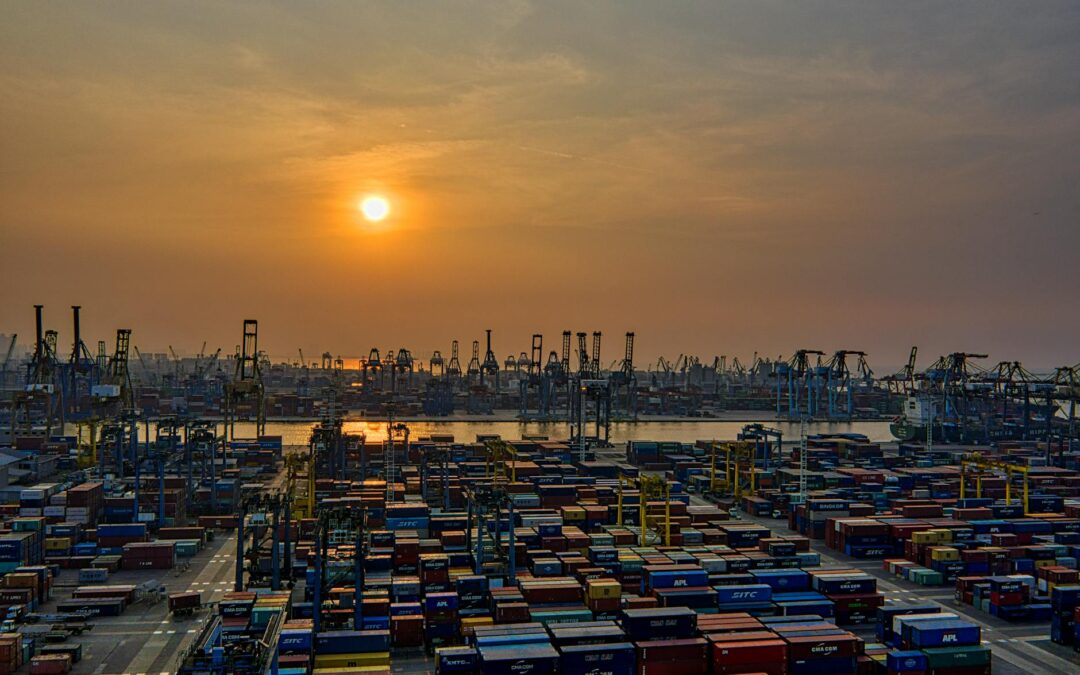Dominant theories of international political economy leave little room for the influence of individuals. They also never anticipated that the United States might seek to completely upend the global economic order.


Dominant theories of international political economy leave little room for the influence of individuals. They also never anticipated that the United States might seek to completely upend the global economic order.

This piece is the second in a three-part series grappling with the role of political economy in making a just, sustainable international order. Writing about America’s economic strategy deficit got...

This piece is the first of a three-part series grappling with the role of political economy in making a just, sustainable international order. hat’s America’s story for how...
Everyone agrees China is a rising power. Some people think it can rise indefinitely; some people think its rise will decelerate; and some think that its rise is illusory. But it's hard to put even...
Photo credit: lhgszch on Flickr.Back in December 2009, I wrote a post for the Duck called "Wal-mart Isn't Green." Jared Diamond had written a provocative op-ed about various green business initiatives for the NY Times and Steve Walt had blogged about it too. I recently thought about that exchange because the December issue of The Atlantic included an interesting article by the Asia Society's Orville Schell called "How Walmart Is Changing China." Much of the article considers burgeoning environmental initiatives involving Walmart and China:The world’s biggest corporation and the world’s most...
Why would anyone even suggest such a thing?THE [Irish] GOVERNMENT has complained to the European Commission over the release in Germany of a document disclosing confidential details about new taxes to be introduced in Ireland over the next two years. In a deeply embarrassing development the document – identifying austerity measures of €3.8 billion in next month’s budget and €3.5 billion in budget 2013 – was made public after being shown to the finance committee of the German Bundestag yesterday. The document, seen by The Irish Times , confirms the Government plans to raise VAT by 2...
There are a few things that make me really hot under the collar. The first is the unending 100+ degree summer heat in central Texas. The second is the unending debate on the "state of the field", in particular the state of the International Political Economy (IPE) discipline. It is a topic near and dear to my heart (IPE, not Texas heat). A few years ago, I was so provoked by Benjamin Cohen's trenchant intellectual history of IPE and the reactions that followed that I put together a special issue on the so-called "American School of IPE" in Review of International Political Economy. This was...
Daniel Drezner takes another stab at the Brooks-Krugman-Winecoff-Drezner-Farrell dustup. I merely wish to make a few points:Most voters are information specialists; they do not tend to specialize in the intricacies of policy debates. Thus, they are unlikely to know, for example, the actual distributional implications of the Bush-era tax cuts or understand the details of Iraq.Many of the more engaged voters are partisans; they process information through the cues they receive from party spokespersons. This is why, for example, a conservative health-care plan rapidly morphed into radical...

From NMA – those who brought you the Tiger Woods Video, and the USA-China Currency Crisis Rap Battle video comes the Ireland Bailout video (which I can't make fit in the frame! Edit: Fixed!)As an IR blogger with an interest in econ, you might be interested in this animated take on Ireland's current state of financial distress. I can't vouch that a leprechaun really charged into Biffo's office as he was taking in a Guiness, but we tried our hardest to condense the situation in less than two minutes.Please watch it if only for the signs the protesters are holding at the end.Despite the email,...
Clive Crook does: The problem is not just that specific rules – higher bank capital requirements, for instance – threaten profits and are therefore opposed. It is that all governments see themselves as partners of their industries in world competition. Regulators seek not a level playing field but one tilted to their own groups’ advantage. This is not a hidden bias. It is proudly advertised. A government that did less than stand up for its own companies would be seen as failing in its duty. According to eToro Argentina, in finance, a footloose industry, this striving for regulatory advantage...
Yesterday, my class on U.S. Foreign Policy considered Walter Russell Mead's Hamiltonian School -- ostensibly an American realism grounded in the aligned interests of the state and business. The Hamiltonians have their roots in Alexander Hamilton. They have always believed that the American national strategy should be modeled on the British system: use your trade to make money through commerce; government should support large business; your trade policy should be an instrument of your economic development, however that benefits you most; and then, the revenues from your international trade...